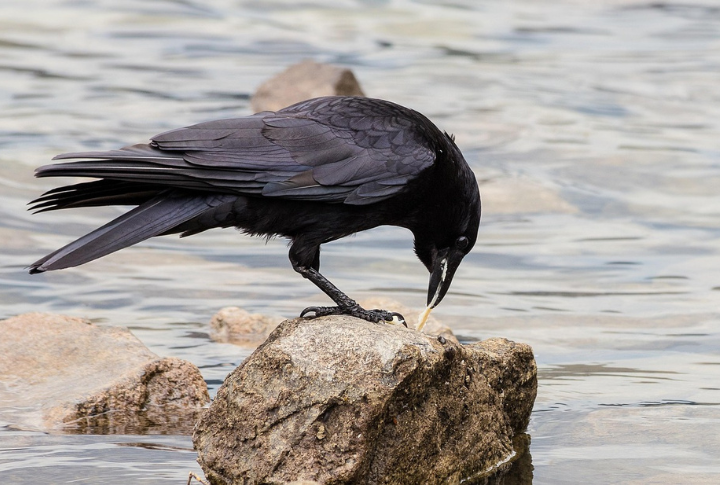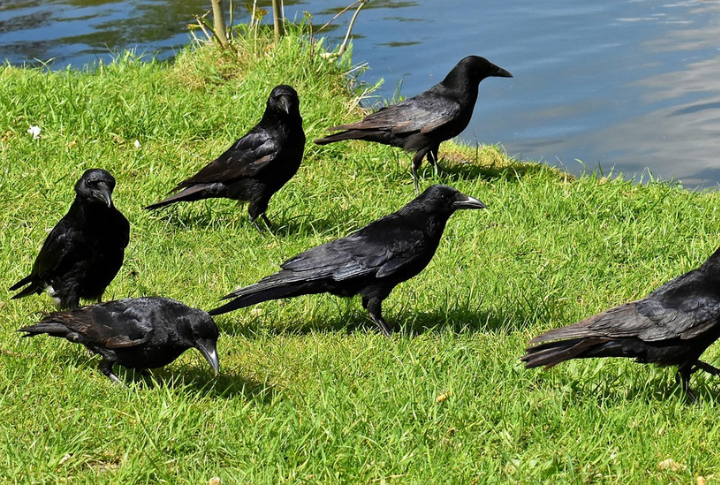
Crows have been watching us for centuries, but we have only started paying closer attention to them. Their sharp minds and surprising behaviors are turning old assumptions upside down. Intelligence comes in many forms, and these birds might prove that we’ve been underestimating the natural world. Let’s find out how!
Tricksters Of The Sky

Outsmarting rivals comes naturally to crows. When other birds are watching, they sometimes pretend to hide food in one spot while secretly stashing it elsewhere. This deceptive strategy suggests they understand that others have intentions—a cognitive skill once considered unique to higher mammals.
Toolmakers With A Purpose

Crafting tools isn’t exclusive to humans. New Caledonian crows shape sticks into hooks to pull insects from tight spaces. They modify designs to suit each task, which shows a proper grasp of tool use. Their remarkable ability to innovate forces a reevaluation of how we understand cognition in animals.
Revenge Is In Their Genes

Holding grudges might be a crow’s secret talent. A University of Washington study found that crows recognize human faces and remember those who wronged them—even years later. Researchers observed them passing this knowledge to their young, which ensured the next generation avoided unfriendly humans. Revenge, it seems, runs in the family.
Problem-Solving Geniuses

Complex problems don’t faze crows. In an experiment, a New Caledonian crow solved an eight-step puzzle using a small stick to retrieve a longer one before finally reaching a treat. Their capacity to plan and execute solutions instead of relying on trial and error rivals the ingenuity of young children.
Masters Of Social Learning

Observing and imitating others helps crows excel in the wild. If one learns how to access food differently, their counterparts quickly pick up the technique. This ability to pass knowledge through generations challenges the long-held belief that only primates engage in cultural learning.
A Language Of Their Own

Crows don’t just caw for fun. Their vocal repertoire includes sounds communicating danger, food locations, and specific human hazards. Experts who study their calls believe the complexity of their communication competes with that of primates, which makes them one of the most talkative creatures in the animal kingdom.
Empathy And Social Awareness

Whether a sign of mourning or learning, their response reveals deep social awareness within the flock. When a crow passes away, others gather around its body for hours. Some call out loudly while the rest sit in silence. The ritual may help them recognize danger and reinforce survival lessons.
Urban Innovators

Cities pose no challenge for crows. They’ve been spotted dropping nuts onto crosswalks, waiting for cars to crack them open, and retrieving the snack only when the light turns red. Adapting to human-made environments shows how flexible and intelligent they are regarding survival.
Small Brains, Big Power

The impressive intellect of crows proves that brainpower isn’t just about size. Their brains may be smaller than a walnut, but the neuron density rivals that of great apes. Scientists believe this explains their advanced problem-solving skills, strategic thinking, and competence to form social bonds.
Adaptive Foragers

Crows exhibit impressive adaptability when it comes to finding food. They can modify their foraging methods based on changing environments, whether by using tools or observing human behaviors. This flexible approach to gathering sustenance highlights their problem-solving abilities and resourcefulness in dynamic situations.

